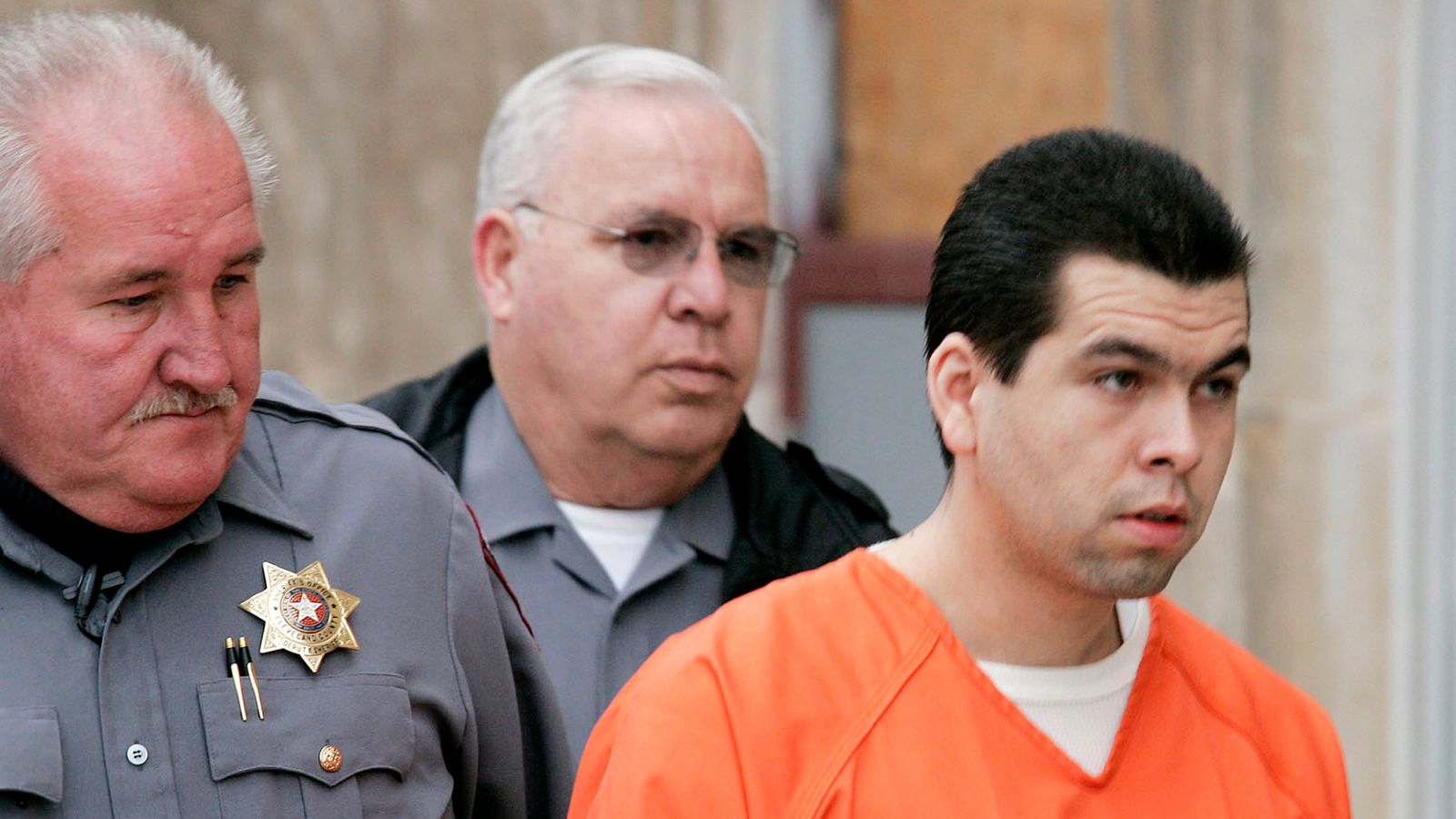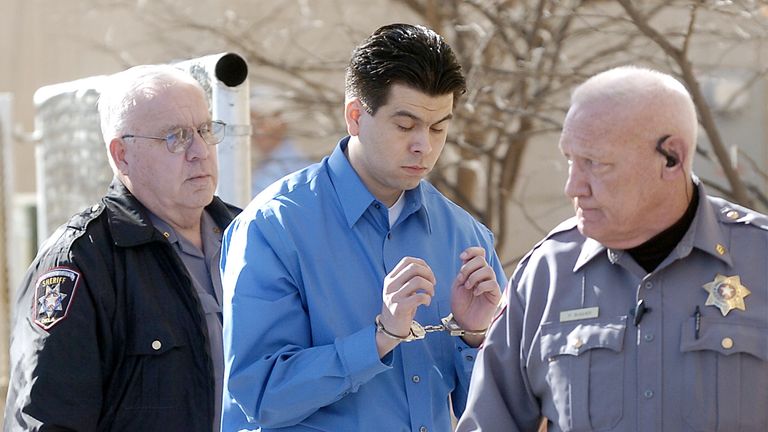A man has been executed in the US for the rape and murder of a dance student which went unsolved for years until DNA from the crime scene was matched to him while he was in prison for burglary.
Anthony Sanchez, 44, protested his innocence as he was strapped down in the death chamber at the Oklahoma State Penitentiary in McAlester.
He was declared dead 11 minutes after the lethal drugs started to be administered.
While Sanchez maintained he had nothing to do with the 1996 killing of 21-year-old Juli Busken, he took the unusual step of opting not to present a clemency application to the state’s pardon and parole board, which many viewed as the last chance to spare his life.
Ahead of his execution, Sanchez criticised his former lawyers and thanked his supporters, including his spiritual adviser who was in the chamber with him.
He said: “I’m innocent.
“I didn’t kill nobody.”
At one point during the procedure, a member of the execution team entered the chamber and reattached an oxygen monitor that prison officials said had malfunctioned.
Read more:
Star’s cause of death revealed after inquest
Man dies driving off collapsed bridge following Google Maps
Shortly before he was put to death, the US Supreme Court rejected a request for a stay of execution submitted by his new lawyer, who had said he needed more time to go through the case evidence.
Juli Busken’s family ‘has found closure and peace’
Ms Busken had just completed her last term at the University of Oklahoma when she was abducted on 20 December 1996, from the car park of her apartment complex.
Her body was found later near a lake on the outskirts of Oklahoma City.
She had been bound, raped and shot in the head.
Busken had performed as a ballerina in several dance performances during her time at the university and a scholarship was set up in her name at the College of Fine Arts.
Years later, Sanchez was in jail for burglary when DNA from the victim’s clothing was matched to him.
He was convicted and sentenced to die in 2006.
None of Ms Busken’s family attended Thursday’s execution, but state attorney general Gentner Drummond said he had spoken to them several times in recent months.
He said: “Juli was murdered 26 years, nine months and one day ago. The family has found closure and peace.”
‘False DNA’
Sanchez had long maintained his innocence.
In an interview earlier this year from death row. “That is fabricated DNA.
“That is false DNA. That is not my DNA. I’ve been saying that since day one.”
He said he had declined to seek clemency because even when the five-member pardon and parole board takes the rare step of recommending it, governor Kevin Stitt was unlikely to grant it.
Sanchez said: “I’ve sat in my cell and I’ve watched inmate after inmate after inmate get clemency and get denied clemency. Either way, it doesn’t go well for the inmates.”
Mr Drummond maintained the DNA evidence unequivocally linked Sanchez to Ms Busken’s killing.
He said the odds of randomly selecting an individual with the same genetic profile were one in 94 trillion.
‘Brutal rapist and murderer’
“There is no conceivable doubt that Anthony Sanchez is a brutal rapist and murderer who is deserving of the state’s harshest punishment,” Mr Drummond said in a recent statement.
A private investigator hired by an anti-death penalty group argued the DNA evidence may have been contaminated.
Ballistic evidence
But former Cleveland county district attorney Tim Kuykendall, who was the county’s top prosecutor when Sanchez was tried, has said while the DNA evidence was the most compelling at trial, there was other evidence linking him to the killing, including ballistic evidence and a shoe print found at the crime scene.
Mr Kuykendall said recently: “I know from spending a lot of time on that case, there is not one piece of evidence that pointed to anyone other than Anthony Sanchez.
“I don’t care if a hundred people or a thousand people confess to killing Juli Busken.”
Sanchez is the third inmate put to death in Oklahoma this year and the tenth since the state resumed carrying out the death penalty in 2021 ending a six-year moratorium introduced over concerns about its execution methods.


